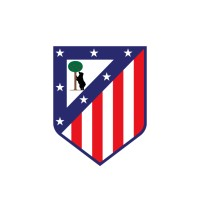Chaos at the Metropolitano: A Derby Disrupted
September 30, 2024, 3:43 pm

Location: Spain, Community of Madrid, Madrid
Employees: 501-1000
Founded date: 1902
Total raised: $296.74M
The atmosphere was electric. The Metropolitano Stadium, home to Atletico Madrid, buzzed with anticipation as fans filled the stands for the highly anticipated derby against Real Madrid. This clash of titans is more than just a game; it’s a battle for pride, a clash of cultures, and a showcase of raw emotion. But on September 29, 2024, that passion turned into chaos.
As the clock ticked towards the 69th minute, the tide shifted. Eder Militao, a defender for Real Madrid, broke the deadlock with a stunning goal. The visiting fans erupted in jubilation. But in the south lower stands, the atmosphere soured. Atletico ultras, known as Fondo Sur, reacted with fury. Objects began to rain down onto the pitch, a torrent of frustration aimed at the Real Madrid players, particularly goalkeeper Thibaut Courtois.
The referee, caught in the crossfire of escalating tensions, had no choice but to halt the match. The players, caught in a moment of disbelief, stood frozen as the crowd’s anger boiled over. It was a scene reminiscent of a storm brewing on the horizon—dark clouds gathering, ready to unleash their fury.
Atletico captain Koke and defender Jose Maria Gimenez attempted to quell the unrest. They ventured into the stands, trying to calm the furious fans. But their efforts were met with a mix of support and defiance. The referee, sensing the volatility, ordered the players to retreat to the dressing rooms. The announcer’s voice echoed through the stadium, warning that continued disturbances could lead to the game being abandoned. The tension was palpable, a tightrope walk between passion and pandemonium.
After a delay of over 20 minutes, the players returned to the pitch. The game resumed, but the shadow of that moment lingered. The incident raised questions about the boundaries of passion in sports. When does fervor cross the line into recklessness?
In the aftermath, Atletico Madrid’s manager, Diego Simeone, spoke out. He emphasized the need for accountability—not just for the fans who threw objects, but also for players who might provoke such reactions. His words echoed a sentiment that resonates beyond the confines of the stadium. In the world of sports, every action has consequences.
The derby, a microcosm of the broader football culture, reflected the complexities of fandom. Supporters are the lifeblood of the game, their energy fueling the players on the pitch. Yet, when that energy turns destructive, it poses a threat to the very essence of the sport. Football is a beautiful game, but it can also be a battleground of emotions.
This incident is not isolated. Across the globe, football matches have seen similar outbursts. Fans, driven by passion, sometimes lose sight of the line between support and aggression. The question remains: how can clubs and governing bodies foster a culture of respect while still embracing the fervor that makes football so captivating?
The responsibility lies not only with the fans but also with the players and management. They must recognize their influence. Celebrations can ignite joy, but they can also provoke ire. The dance of emotions is delicate. A single moment can tip the scales from celebration to chaos.
As the dust settles on this derby, the repercussions will unfold. Will there be sanctions for the fans? Will players face scrutiny for their actions? The answers will shape the narrative of this season and beyond.
In the heart of Madrid, the rivalry between Atletico and Real is fierce. It’s a tale as old as time, steeped in history and passion. But with that passion comes a responsibility. The Metropolitano Stadium should be a fortress of support, not a battleground of conflict.
The beauty of football lies in its ability to unite. It brings together people from all walks of life, united by a common love for the game. But when that unity fractures, it serves as a stark reminder of the fine line between passion and chaos.
As fans return to the stands, they must remember the power they wield. Their voices can lift their team to victory, but their actions can also lead to turmoil. The Metropolitano Stadium should echo with cheers, not the sound of objects crashing onto the pitch.
In the end, the derby will be remembered not just for the scoreline, but for the lessons learned. Football is a mirror reflecting society. It shows us our strengths and our flaws. The challenge lies in harnessing that passion for good, ensuring that the beautiful game remains just that—beautiful.
As the sun sets over Madrid, the city will heal. The fans will return, the players will regroup, and the rivalry will continue. But the echoes of that day will linger, a reminder of the responsibility that comes with passion. The game must go on, but it must do so with respect, unity, and a shared love for the sport.
As the clock ticked towards the 69th minute, the tide shifted. Eder Militao, a defender for Real Madrid, broke the deadlock with a stunning goal. The visiting fans erupted in jubilation. But in the south lower stands, the atmosphere soured. Atletico ultras, known as Fondo Sur, reacted with fury. Objects began to rain down onto the pitch, a torrent of frustration aimed at the Real Madrid players, particularly goalkeeper Thibaut Courtois.
The referee, caught in the crossfire of escalating tensions, had no choice but to halt the match. The players, caught in a moment of disbelief, stood frozen as the crowd’s anger boiled over. It was a scene reminiscent of a storm brewing on the horizon—dark clouds gathering, ready to unleash their fury.
Atletico captain Koke and defender Jose Maria Gimenez attempted to quell the unrest. They ventured into the stands, trying to calm the furious fans. But their efforts were met with a mix of support and defiance. The referee, sensing the volatility, ordered the players to retreat to the dressing rooms. The announcer’s voice echoed through the stadium, warning that continued disturbances could lead to the game being abandoned. The tension was palpable, a tightrope walk between passion and pandemonium.
After a delay of over 20 minutes, the players returned to the pitch. The game resumed, but the shadow of that moment lingered. The incident raised questions about the boundaries of passion in sports. When does fervor cross the line into recklessness?
In the aftermath, Atletico Madrid’s manager, Diego Simeone, spoke out. He emphasized the need for accountability—not just for the fans who threw objects, but also for players who might provoke such reactions. His words echoed a sentiment that resonates beyond the confines of the stadium. In the world of sports, every action has consequences.
The derby, a microcosm of the broader football culture, reflected the complexities of fandom. Supporters are the lifeblood of the game, their energy fueling the players on the pitch. Yet, when that energy turns destructive, it poses a threat to the very essence of the sport. Football is a beautiful game, but it can also be a battleground of emotions.
This incident is not isolated. Across the globe, football matches have seen similar outbursts. Fans, driven by passion, sometimes lose sight of the line between support and aggression. The question remains: how can clubs and governing bodies foster a culture of respect while still embracing the fervor that makes football so captivating?
The responsibility lies not only with the fans but also with the players and management. They must recognize their influence. Celebrations can ignite joy, but they can also provoke ire. The dance of emotions is delicate. A single moment can tip the scales from celebration to chaos.
As the dust settles on this derby, the repercussions will unfold. Will there be sanctions for the fans? Will players face scrutiny for their actions? The answers will shape the narrative of this season and beyond.
In the heart of Madrid, the rivalry between Atletico and Real is fierce. It’s a tale as old as time, steeped in history and passion. But with that passion comes a responsibility. The Metropolitano Stadium should be a fortress of support, not a battleground of conflict.
The beauty of football lies in its ability to unite. It brings together people from all walks of life, united by a common love for the game. But when that unity fractures, it serves as a stark reminder of the fine line between passion and chaos.
As fans return to the stands, they must remember the power they wield. Their voices can lift their team to victory, but their actions can also lead to turmoil. The Metropolitano Stadium should echo with cheers, not the sound of objects crashing onto the pitch.
In the end, the derby will be remembered not just for the scoreline, but for the lessons learned. Football is a mirror reflecting society. It shows us our strengths and our flaws. The challenge lies in harnessing that passion for good, ensuring that the beautiful game remains just that—beautiful.
As the sun sets over Madrid, the city will heal. The fans will return, the players will regroup, and the rivalry will continue. But the echoes of that day will linger, a reminder of the responsibility that comes with passion. The game must go on, but it must do so with respect, unity, and a shared love for the sport.
